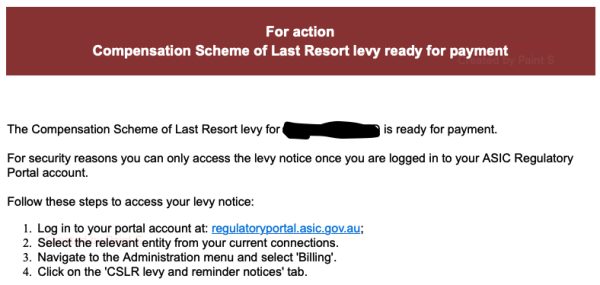Do ASIC regulatory requirements exceed law?

The Australian Securities and Investments Commission (ASIC) has been accused of exceeding the requirements of the law via the imposition of regulatory expectations, including with respect to ongoing fee arrangements.
The Stockbrokers and Investment Advisers Association (SIAA) has repeated its messaging to ASIC about imposing “expectations of compliance with the law that exceeds what the law requires”.
“…we consider that in certain cases ASIC has not struck the right balance between providing sufficient clarity to support compliance and allowing flexibility for entities to apply the law in a way that is proportionate to their business model and circumstances,” the SIAA said.
“ASIC should not be using regulatory guidance to make law and impose more onerous obligations on its regulated population than those legislated by Parliament. ASIC Information Sheet 283 Supervising your representative’s business communications is an example of this,” it said.
The SIAA response to ASIC argues that “the primary law is the best place for general principles while detail and prescription is best placed in legislative instruments, adding that “a recent example of regulatory complexity resulting from detailed and prescriptive requirements being included in primary legislation is the Ongoing Fee Arrangement provisions”.
Elsewhere in its response, the SIAA said a key reason stakeholders prefer prescriptive guidance from ASIC is the complexity of the underlying law that the guidance is seeking to explain as well as the severe penalties for non-compliance.
“Without reform of the underlying law, we do not consider that there will be appetite amongst ASIC’s regulated population for less specificity in its guidance,” it said.
As well, the SIAA said that while it welcomes ASIC’s work in simplifying regulation and attempts to ease the regulatory burden, reduction of regulatory complexity will not be achieved without implementing the recommendations of the Australian Law Reform Commission (ALRC).
It said that without legislative reform it will be challenging for ASIC to make potential improvements proposed in the Report that will result in the content of its Regulatory Guides being any simpler or more practical.











Remind us again the position of ASIC Commissioner Alan Kirkland when he was CEO of CHOICE with regard to ongoing advice fees being paid from super.
It’s a terrific read.
OFA’s should be required at the start or for any increase.
Anything over and above that is an absurd insanity given the number of times and places a client is told about the fee they pay.
Clients are paying for something that is totally unnecessary.
This isn’t difficult folks.
Au contraire Mr/Ms “It’s the red tape” : Asking a client to confirm ongoing fees annually “isn’t difficult, folks”, either – and it’s respectful of them and allows them to see that it’s not actually a requirement they can’t refuse, but a choice they can make and affirm each year, confirming their desire to maintain the relationship. What is possibly wrong with that? Or do you want adviser fees to be seen like Gym memberships that just keep rolling on, unable to be easily altered, for years, despite maybe not being used?
That’s why direct debits are also wrong, because they require the payee to shut it down…which almost always is NOT going to happen. Respect for clients means clear and open consent and invoicing annually is the minimum that should be expected. Is it no wonder that so many still regard advisers as cowboys, given the reluctance to behave with respect to clients?? I started invoicing clients annually about 30 years ago and sure, some dropped off (some for a year or three – others longer) but that’s their right AND I followed up with a note letting them know that if they chose to drop -off my advice they also let go of their contract and took responsibility for their own positions.
That either turned them around OR directed their attention to the need for being more responsible…which, after all, is our real job: to teach them; set them up and then allow them to move on if they wish, or stay, if they wish (and wish to pay).
We should never assume they ‘owe us’ anything, other than the reciprocated respect of a note saying “Thank you, but I’m moving on”. I even gave them that choice by putting it as an option on my invoice reminder, if unpaid after 30 days.
Just sayin’…
ASIC are a law unto themselves.
I heard Alan Kirkland speaking at a Financial Adviser conferance and I found it insightful, especially when he got up on stage and said “I will look for you, I will find you, and I will kill you.” or was that Liam Nielsen in a movie….same thing really isn’t it?
I think I saw him jump in his BMW with the logo “brought” to you buy Hesta written on it.
We all know ASIC is not really about protecting consumers don’t we.